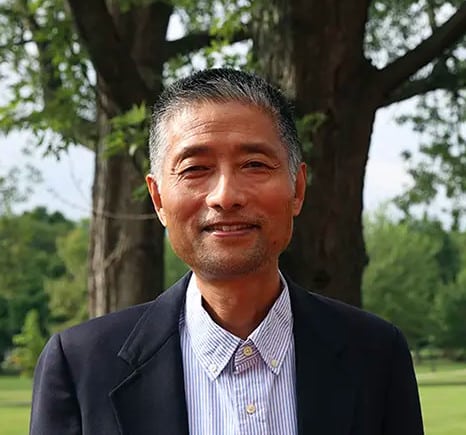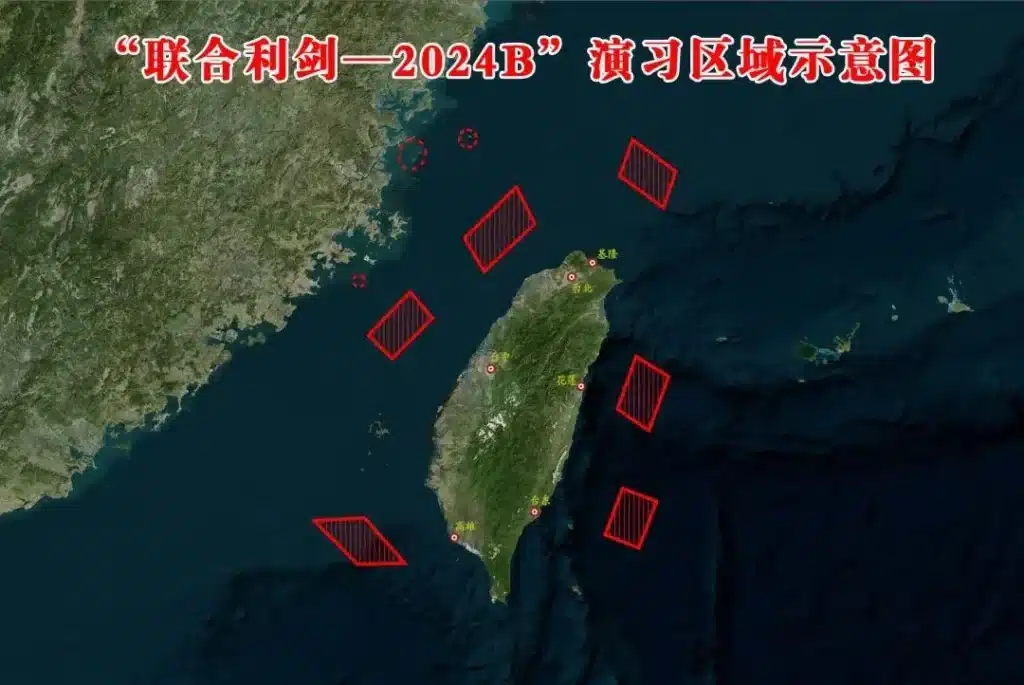The Case Against an Imminent War on Taiwan
- Analysis
 Jinghao Zhou
Jinghao Zhou- 11/05/2024
- 0

Many people from Taiwan, China, and the United States like to ask: Who is more likely to protect Taiwan, Kamala Harris or Donald Trump? Some believe Harris would most likely continue Biden’s policy of protecting Taiwan while others predict that Trump may sacrifice Taiwan at the right time in exchange for other interests in U.S.-China relations. In fact, the question itself is misleading and could undermine public confidence in both Taiwan and the United States regarding the consistency of U.S. strategy in the region. As a result, China benefits from the unproductive debate.
Presidential Candidates’ Positions
Neither Harris nor Trump wants to engage in a war with China over the Taiwan Strait. Trump opposes sending American financial aid to countries like Ukraine and Taiwan. Instead, he demanded Taiwan pay more for U.S. protection when asked if he would defend the island from China’s military actions. During an interview with the Wall Street Journal, he said that he would impose additional tariffs on China, at 150% to 200%, if China were to invade Taiwan. His remarks suggest an attempt to avoid direct conflict with China, at least rhetorically, as China has no reason to fear tariffs from foreign countries in comparison with the difficulties China experienced during the Korean War. A recent Taiwan poll shows that if Trump is elected, only 37.5% of respondents believe the United States would send troops to assist Taiwan in the event of a Chinese attack.
Harris seeks to preserve U.S. influence in the region while steering clear of direct conflict with China. During her 2024 60 Minutes interview, Kamala Harris declined to answer whether she would send U.S. troops to defend Taiwan against a Chinese attack, stating she doesn’t respond to hypothetical questions. This contrasts with President Biden, who affirmed five times that U.S. forces would defend Taiwan in the event of a Chinese invasion. Harris may be pursuing a middle path by balancing a pro-Taiwan foreign policy and managing the potential risks in the Taiwan Strait. Yet, Harris claims that Taiwan’s security could be at great risk if Trump is elected. Nevertheless, it’s still uncertain whether the majority of Taiwanese people believe Harris will protect Taiwan, even though she leads Trump by 38 points among Asian American voters.
The United States Can’t Afford to Lose Taiwan
In practice, any U.S. president’s foreign policy decisions are fundamentally driven by American national interests, geopolitical dynamics, economic considerations, security concerns, and international alliances. If China attacks Taiwan, the United States does not have any choice but to protect Taiwan to maintain the status quo and retain its military deterrence in the region. First, the United States has never accepted China’s One-China principle although China insists that Taiwan is an inalienable part of China and demands international recognition. The United States’ One China policy only acknowledges China’s claim over Taiwan but does not accept it, maintaining ambiguity.
Secondly, Taiwan’s strategic location in the first island chain is pivotal for the United States in blocking Chinese naval expansion into the Pacific and is crucial for U.S. defense strategy in the region and protecting U.S. allies. Taiwan produces approximately 60% of the world’s microchips. An attack on Taiwan could severely impact global economies, greatly harm U.S. advanced technology including sophisticated military weaponry systems, and endanger U.S. national security.
Third, if Taiwan were to fall, it would not only represent a significant regional defeat for the United States but also demonstrate China’s capability to break through the first island chain. Failure to act could embolden adversaries, jeopardize U.S. credibility as a security guarantor not only to Taiwan, but also to its allies in the region, such as Australia, Japan, South Korea, and the Philippines, and lead to a severe deterioration of U.S. standing in Asia.
Fourth, Taiwan’s collapse could usher in a Pax Sinica, allowing Beijing and its allies to advance their interests far more aggressively without restraint and projecting its power more effectively across the first island chain. As a result, the United States would face a significant erosion of its global leadership and ultimately have to acknowledge the outcome of a rebalanced global power structure—either a G2 arrangement or China as the dominant superpower. Since World War II, the U.S. has resisted allowing other countries to challenge its leadership and rejected the prospect of becoming a secondary power in global affairs.
In recent years, growing recognition of Taiwan’s strategic and economic importance, along with its democratic achievements, has sparked calls to enhance U.S.-Taiwan relations, ushering in a new era in which security cooperation has increased, and high-level visits have become more frequent. Although the Taiwan Relations Act of 1979 and the Taiwan Conflict Deterrence Act of 2023 do not explicitly require the United States to defend Taiwan, under given circumstances, if China were to invade Taiwan, the United States would be obligated to intervene, regardless of who is president at that time.
Tension is High, but a War is Unlikely
The window for peaceful reunification is gradually narrowing as sentiments on both sides of the Taiwan Strait continue to diverge. According to the Pew Research Center, only 3% of Taiwanese identify as primarily Chinese and the majority (67%) see themselves as Taiwanese, indicating that the minds of the Taiwanese people are moving away from China.
Since Lai Ching-te took office as Taiwanese president on May 20, 2024, tensions between Taiwan and China have escalated. In his inaugural speech, Lai emphasized Taiwan’s sovereignty, stating that Taiwan cannot make any concessions on democracy and freedom. Lai asserted that China has “no right to represent Taiwan” in his speech on Taiwan Independence Day on October 10. His firm stance on sovereignty and resistance to annexation demonstrates Taiwan’s determination to maintain the status quo. Four days after Lai’s address, China launched a large-scale military exercises surrounding Taiwan to warn Taiwan, creating a tense situation in the Taiwan Strait.
However, the closest point between Taiwan and China is more than 90 miles away, which poses logistical hurdles, requiring a massive fleet to transport troops, supplies, and equipment. Taiwan’s mountainous terrain, heavily fortified cities, and strong air defenses would complicate efforts, while any prolonged conflict increases the risk of foreign intervention. To take over Taiwan by military force, China would need to execute an exceptionally complex military operation, coordinating air, land, and sea forces along with electronic and cyber warfare capabilities.
Strategic missile systems would also be crucial in neutralizing Taiwan’s defenses and deterring the United States and its allies’ intervention. It is widely reported that China’s rocket force is experiencing dysfunction due to corruption scandals, leading to significant gaps in combat readiness. The recent leadership changes and public admissions of shortcomings further underscore these critical issues within the military. China is unlikely to complete such complex preparations during either the Harris or Trump administrations.
The reunification of Taiwan is a longstanding principle upheld by all top leaders of the CCP since the establishment of the PRC. Although the three sides had differing perspectives on Taiwan’s relationship with China, they refrained from trying to settle the issue and did not confront each other’s fundamental positions before the Xi administration. China has various options to take over Taiwan, such as coercion without war, island seizure, blockade, bombardment, and full invasion. Xi Jinping’s views on unification are more aggressive and risky, which can be perceived as somewhat disconnected from the complexities of the current geopolitical environment.
Apparently, China does not have a consensus among senior party and military leaders on when and how to achieve unification with Taiwan. If moderate factions within the leadership gain influence in the future, they are likely to rationally weigh the potential gains and costs before deciding on the course of action for taking over Taiwan. There are positive signs that China’s new border deal with India and recent development of military-to-military relations with Vietnam signal a potential shift from wolf warrior diplomacy to a more moderate approach, allowing China to focus on its urgent domestic agenda.
If Harris or Trump can fulfill their promises to end the war in Gaza soon and mediate a peace deal between Russia and Ukraine after the 2024 election, the United States will be able to demonstrate a stronger deterrence posture against China’s ambitions regarding Taiwan and possibly push China to restore Deng Xiaoping’s reform and opening-up policy. Accordingly, the unfinished task of unifying Taiwan may be postponed until global power shifts in China’s favor and the political frameworks between Taiwan and the mainland increasingly converge.
Jinghao Zhou is an associate professor of Asian studies at Hobart and William Smith Colleges in New York. His research focuses on contemporary China, and U.S.- China relations. He has published six books and six dozen articles. His latest book is Great Power Competition as the New Normal of China-U.S. Relations (2023).
The views expressed in this article represent those of the author(s) and not those of The Carter Center.







